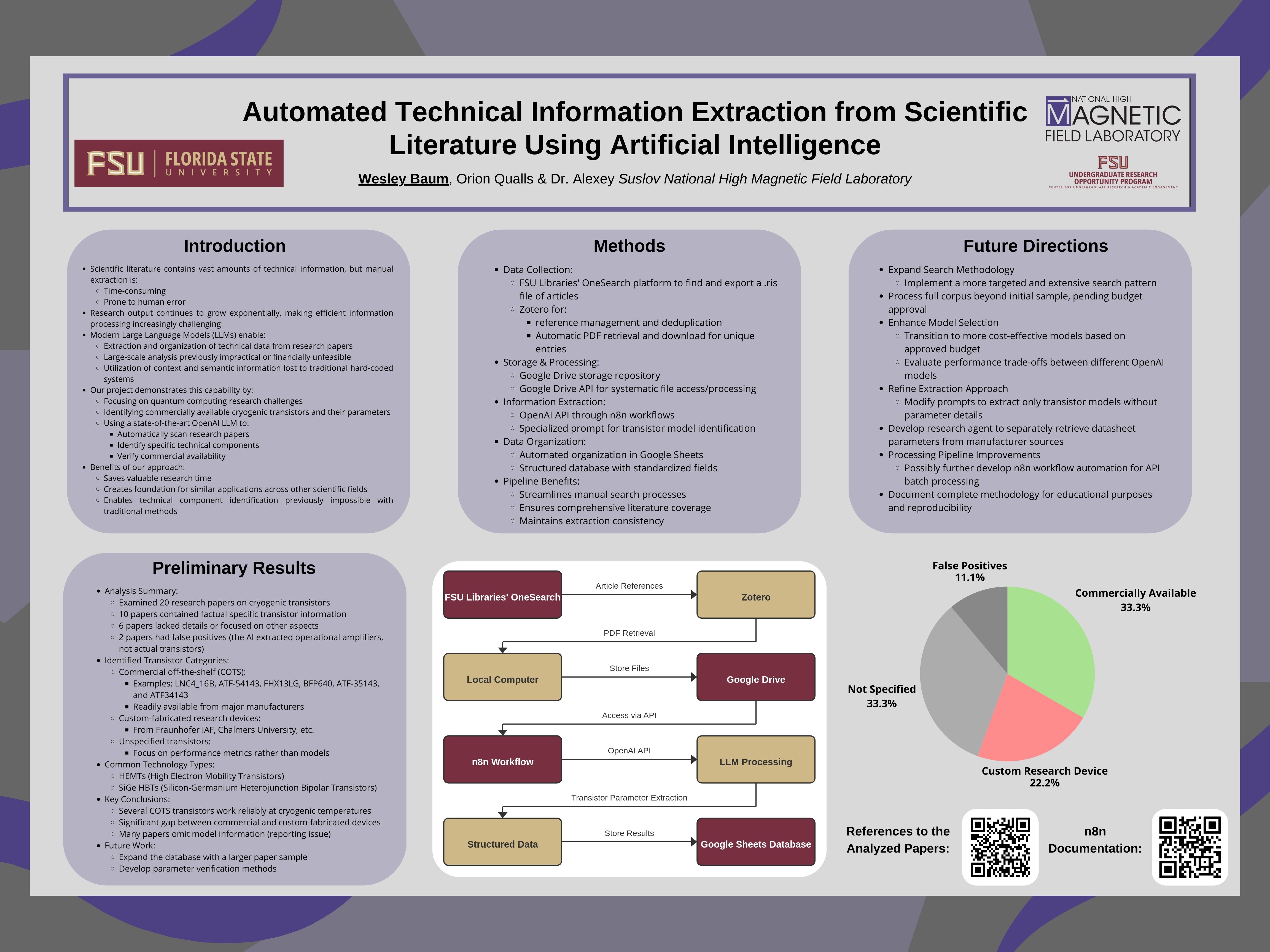Research Symposium
25th annual Undergraduate Research Symposium, April 1, 2025
WESLEY BAUM Poster Session 4: 3:00 pm - 4:00 pm/ Poster #206

BIO
I'm Wesley Baum, a freshman Entrepreneurship student and FSU Presidential Scholar from Brooksville, Florida. I work remotely as an AI Automation Engineer at Bluleadz, a HubSpot solutions partner, where I develop custom AI agentic solutions for both internal use and enterprise clients. For my UROP project with Dr. Suslov at the National High Magnetic Field Laboratory, I'm building an automated system that extracts data from scientific papers about cryogenic amplifiers. I'm looking forward to continuing to explore applications of AI technology throughout my time at FSU.
Automated Technical Information Extraction from Scientific Literature Using Artificial Intelligence
Authors: WESLEY BAUM, Alexey SuslovStudent Major: Entrepreneurship
Mentor: Alexey Suslov
Mentor's Department: National High Magnetic Field Laboratory Mentor's College: National High Magnetic Field Laboratory Co-Presenters:
Abstract
Efficient extraction of specific technical information from scientific literature remains a significant challenge for researchers across disciplines. This project develops an automated literature analysis system using Large Language Models (LLMs) to identify and extract targeted information from research papers. We are implementing this system through n8n, an open-source JavaScript-based automation platform running on a Digital Ocean droplet, customized JavaScript for data manipulation, the OpenAI API, and Google Sheets API, with our initial application focusing on identifying transistor model information from studies performed at cryogenic temperatures to assess the commercial availability of these transistors. The system employs custom prompting strategies to optimize accurate extraction while maintaining flexibility for adaptation to other research domains. Preliminary testing demonstrates successful automated identification of specific technical components from papers, with the modular architecture allowing for straightforward retargeting to different types of technical data extraction. This scalable approach to scientific literature analysis has incredible implications beyond our initial use case, as it could potentially accelerate the often lengthy and tedious literature analysis across various fields requiring large-scale quantitative data by automating the extraction and organization of domain-specific technical information.
Keywords: automation, literature analysis, cryogenics, data extraction, machine learning

